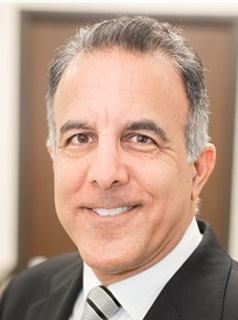Late Nights Make For Dangerous Drives
A recent study performed by the Women’s Hospital of Boston has been published in the Proceedings of the National Academy of Sciences. India Times explains: “Night shift workers may be at an increased risk for drowsy driving crashes because of disruption to their sleep-wake cycles and insufficient sleep, a new study has warned.”
The journal publication provided insight into the dangers of driving following a back-shift, or night shift. These shifts usually run from a late evening hour such as 10 or 11pm to the following morning, anytime from 7am to noon. Depending on the type of job being performed shifts could last anywhere from 6 to 12 hours.
The study was small, and included only 16 workers, but found significant alterations in driving patterns following shifts of this nature. Medical News Today writes: “The results showed that 37.5% of the drivers had a near-crash event when they drove after a night of work, compared with none of the same drivers having a near-crash event when they drove after a normal night of sleep. Most drivers admit they have driven a motor vehicle while drowsy. Within the past year, 28% of American drivers have reported falling asleep at the wheel, say the researchers.”
This drowsiness is caused by changes in the biological routines of the body when sleep and wake schedules change. This has been proven to cause other negative responses in regards to memory and attention in past studies as well.
Drowsy Driving
Although there are no tests out to alert authorities to drowsy driving, the way that breathalyser tests prove intoxication, it has proven to be a hazard with motorists for decades now. The drowsy driving dangers have been seen before in cases of large truck drivers before laws changed to require stops during journeys. Some cases have even seen drivers fall asleep at the wheel, although the most recent study was highlighting irregular driving while drowsy, rather than the odds of sleeping at the wheel.
How This Study Differed From Past Research
This is not the first study to consider the effects of overnight work on driving a motor vehicle, but it does differ in that the research used data from participants who drove in real automobiles rather than simulated situations. Lead researcher, Dr. Charles Czeisler, was quoted by CBC News in stating: "They were crossing over the middle line, they were having trouble. More than 40 percent of the drivers had to be terminated because it was judged to be unsafe. They knew they were being watched and yet even in that context, they couldn't stay awake while they were driving in a simulation of their commute home from work.”
This sheds some light on the concept that even while aware of observation, it is not always possible to control actions on the road while extremely tired. This was the first effort to show exactly how reactive the human body was to sleepiness when driving in a real vehicle, and therefore showed more thorough results than simulated tests of the past. Even with such a small number of workers being documented, the results reported higher risks of an accident while driving drowsily.
Research Procedure
In order to verify that each participant had the same or similar number of waking and sleeping hours prior to the test, each of the 16 individuals slept an average of 7.6 hours before testing their skill behind the wheel while fully rested. They then tested the same individuals after a night shift, with a trained professional available to take control should an accident begin to take place.
The most alarming findings of the study were the relation in reaction to driving under the influence of alcohol, which has been proven dangerous and is illegal in North America. The rested participants had no risk of crashing, with no near accidents. While drowsy, six of the drivers experienced eleven close calls in terms of possible accidents. The most noticeable drowsiness occurred as soon as fifteen minutes after drivers had begun their journey home. Safety And Health Magazine reports: “After working the night shift, drivers displayed more drowsiness, declining driving performance, and higher risk of near-crashes. Emergency braking was needed for more than one-third of drives after a night shift.”
Following these tests, researchers could conclude that future protocols for drowsy driving may need to be stricter. Designated drivers or public transportation could be an answer to the problem, but this would ultimately need to be taken into consideration by individual employers.
As of now, state laws differ on drowsy driving. New Jersey, for example, recently passed a law which could land drowsy drivers in jail if they are caught by law enforcement. Other states have no laws in place for this activity, but could still arrest an impaired driver if they are caught dozing behind the wheel or creating a possible traffic risk.

WARNING: Limitations of Online Doctor/Medical Consultations and Online Prescriptions, QuickRxRefills Cannot and Will NOT Prescribe, Dispense, or Resell any and all medications Narcotics/Controlled Substances (this policy is fully enforced by the Drug Enforcement Administration (DEA)) for Anti-depressants, Pain, Anxiety, Weightloss, Sleep, ADHD/ADD, Anabolic Steroids, Testosterone Replacement Therapy and any and all Medications that contain GabaPentin or Pseudroephedrine including non-controlled substances or any medications that are considered controversial, Off Labeled (Growth Hormone aka HGH) or recalled in nature such (i.e. Retin-A, Accutane). Furthermore, QuickRxRefills is not a substitute for an office based physician in your location nor is it a substitute for Emergency Medical Care or 911. If you do experience a "true" medical emergency your are encouraged to pick up the phone and dial 911 as soon as possible.






